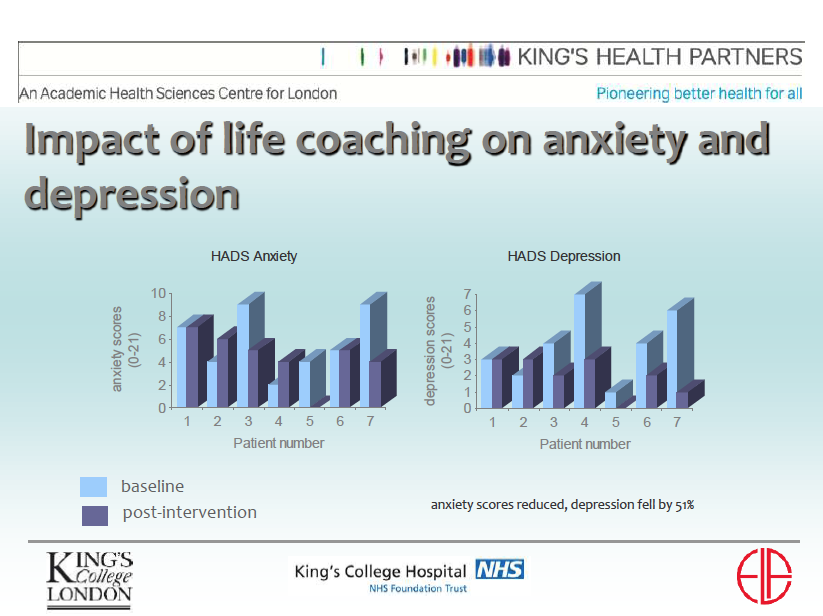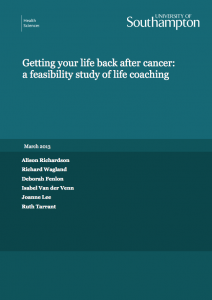evidence based
Some of the work we do as coaches is backed up with scientific psychological evidence.
Research explains our misconceptions about happiness, the annoying features of the mind that can lead us to think irrationally about happiness, and what to focus on to create more happiness in our lives.
This shows that we should NOT focus too much on good jobs, a nice car/house/…, owning ‘stuff’, true love, lots of money, or the perfect body. Instead, what we should focus on is social connection, kindness, gratitude, healthy practice (physical and emotional), and experiences.
These are all important themes we focus on with our coaching work.
LYLAC has been involved in a feasibility study with Southampton University, Health Sciences in 2012 – 2013 with the School of Health.
The study was entitled “Getting your life back after cancer, a feasibility study of life coaching”.
Seven different assessment scales have been used to measure the outcomes:
- The New General Self-efficacy scale (Chen et al 2001)
- Assessment of Survivorship Concerns (Gotay & Pagano 2007)
- Hope Scale (Snyder et al 1991)
- Quality of Life in Adult Cancer Survivors (QLACS) scale (Avis et al 2006)
- Hospital Anxiety and Depression (HADS) scale (Zigmund & Snaith 1983 )
- Social Difficulties Inventory (Wright et 2007)
- Personal Wellbeing Index (Lau et al 2005)
All seven outcome measures indicated overall trends of improvement following the intervention, with improvements evident in the median scores. Please get in touch if you want to learn more about this study, and we can tell you more about it.

A study at King’s College Hospital London showed that Life Coaching is effective in reducing both anxiety and depression after a cancer experience. Participants reported fewer concerns post intervention, were more confident and were able to plan for the future.
Watch Lissa Rankin, MD is an OB/GYN physician explains how to create health in all aspects of life, NOT just by promoting healthy behaviours like good nutrition, exercise, and adequate sleep, but by encouraging health and authenticity in relationships, work, creative expression, spirituality, sexuality, finances, and living environment. She found the proof in data collected by many studies at Yale and Harvard Universities, proving that addressing all these areas are just as important, if not more, to create health.
That’s exactly what we focus on in our LYLAC support programme, always keeping the bigger picture in mind and by supporting people in finding and creating balance in all these areas with increased resilience, health and balance as a result.
More evidence-based studies are summarised in this document where several studies have shown that coaching is a valuable and valid way to support people struggling with health issues.
